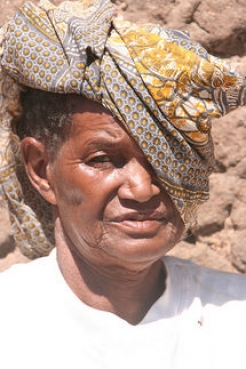 World Elder Abuse Awareness Day takes place on 15 June 2010.
World Elder Abuse Awareness Day takes place on 15 June 2010.
Across the world hundreds of international, national, regional and community organisations and governmental bodies are drawing attention to elder abuse and its significance as a public health and human rights issue.
Many older men and women, especially older women experience violence in their homes and in care settings, as a result of traditional beliefs, or in conflict or post-conflict situations.
Abuse in the home
Research from Kyrgyzstan shows that many older women are physically abused, either by their own children and daughters-in-law at home, or in institutional settings such as care homes by staff and male residents.
One 65-year-old woman from Bishkek says: “I don’t go to the police to make a complaint but if I meet the neighbourhood inspector I tell him that my son is taking my pension. The inspector promises to come and talk to my son. After a day or two, the inspector comes. I understand the police have a lot of work and I can wait, it is not so urgent.”
Women increasingly vulnerable
UN Special Rapporteur on Violence Against Women, Rashida Manjoo, said in November 2009 that women are increasingly vulnerable to violence, exploitation and destitution. This is despite the encouraging commitments by the Kyrgyz Government.
The Law on Social and Legal Protection against Domestic Violence has been described as one of the most progressive in the Central Asia region. However, lack of awareness about the law and lack of control over its implementation at central level means it has not been effective enough.
Brutal witchcraft killings
Meanwhile, Kenya has seen an upsurge in the number of brutal killings of older people, mostly women, accused of witchcraft. An estimated 23 older people were killed in three provinces in the first six months of 2009 alone.
In Tanzania, recent media stories have highlighted the story of an older woman stoned to death in April 2010. She was identified as a witch through a secret poll, conducted by local community members seeking to explain the mysterious death of a young person.
In Sumbawanga district, an older man of 70 years, was allegedly lynched by his own relatives including his children and grandchildren.
Freedom from violence: a basic right
“Older men and women have the same rights as everyone else, including the right to freedom from violence,” says Bridget Sleap, Rights Adviser with HelpAge. “Yet, throughout the world, abuse and neglect of older people are largely under-recognised and certainly under-reported.
“Campaigns like World Elder Abuse Awareness Day (WEAAD) are vital for informing people about elder abuse and highlighting the steps being taken to address this global problem.”
To learn more, visit the World Elder Abuse Awareness Day website.
